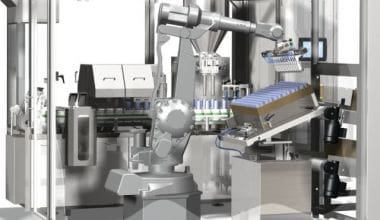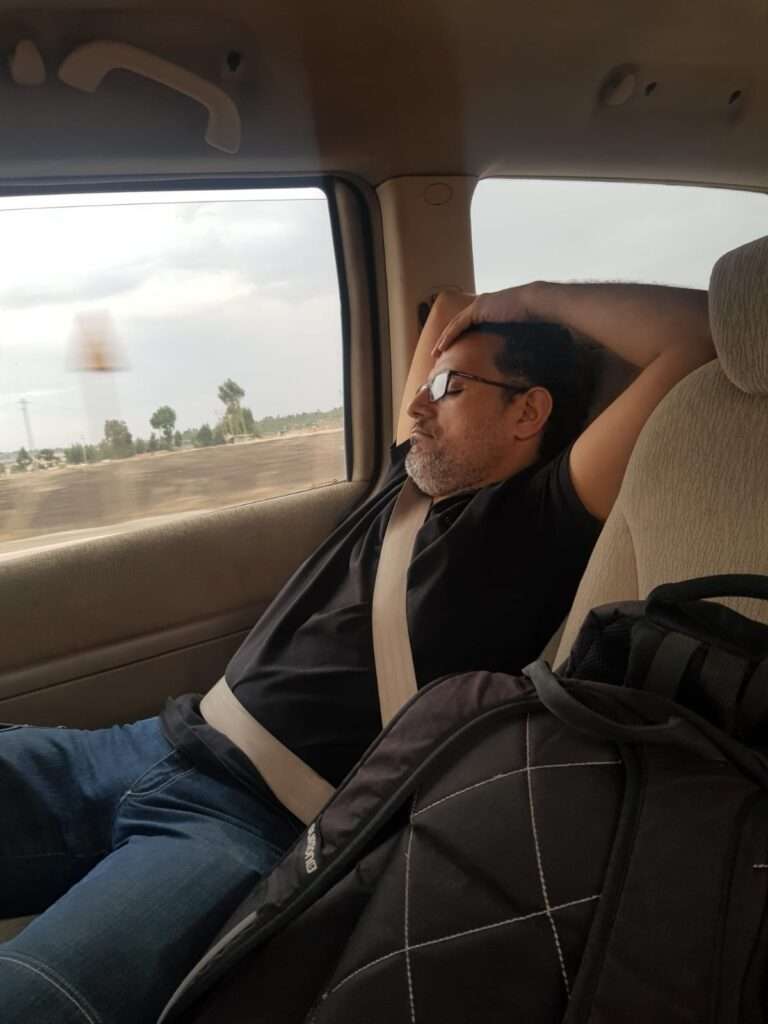How to be successful working as a Service Engineer
Ossama Elgammal is a very experienced Egyptian Field Service Engineer based in Dubai. He is working as a service engineer for the packaging solutions Group Coesia, specifically Swedish tube filling company Norden Machinery and French carton filling company Citus Kalix.
Ossama Elgammal is a Service and Commissioning Engineer for tube filling machinery


“Did you know that the tube contains less packaging material than an equivalent type of packaging? Tubes are often a preferred packaging solution for cosmetics, pharma, food and industrial products.
The tube packaging prevents the contents from getting in contact with air, thus avoiding oxygen and contaminants. Thereby the tube gives the product longer shelf life.
Tubes made from mono-material or aluminium are perfectly possible to recycle.
When you are done using your tube, no residue is left in the package, since it allows squeezing every bit of the content out. This means less product waste too”.
Norden Machinery


Background and path to working in field service engineering
Could you give a brief description of your background and what led you to study and work in field engineering?
From my early childhood, I had a passion to work with my hands and also to use tools to disassemble toys.
I graduated from the Electric power and Machines Department in the Faculty of Engineering at Cairo University.
My working life started in maintenance in food and pharma factories in Egypt. I was inspired by the field service engineers who visited us to install new lines. They were travelling around the world to do specific tasks and so I decided that I will be a service engineer one day.
Were you interested in science and engineering when you were a child?
Sure, using my father’s hand tools was my passion. I destroyed most of my toys to discover how they work.
Has there been a particular person who has inspired you?
My father (may God rest his soul), influenced me for loving maths, science and electrical systems.
Most challenging part of the job working as a service engineer
What do you find most challenging when you are working – technical side, people/customers, or logistics (travel etc)?
Work planning is the most challenging part. To go to a site in a country thousands of miles away and find some parts are missing or installation area is not ready is a complete disaster.
Second, dealing with an angry customer. Service engineers are on the front line for the company in handling customers.
What has been your most challenging job in the field?
My most challenging job was an installation in a factory in Ethiopia. A new model machine was supplied and when I opened the boxes, I found that the machine parts had been shipped unassembled. That meant that it took me four weeks of hard work in hot summer to see it into production.


Have you ever arrived on site and found that it was much easier than you expected? For example, did you ever need to simply switch on a machine.
This has happened a few times! Once, a communication socket was just not well attached to the operating panel. All I had to do was push it a little and that was it, it worked.
Does the heat impact on your role, and how do you handle it?
Most of the time, we work in unfinished production areas, so the air conditioning is not yet in operation. So, if you are in a hot country, it’s not so easy. We all need many waters breaks during the day.
Typical day working in the field as a Service and Commissioning Engineer
What’s your typical day like?
I work remotely from home. So, the normal day starts with checking WhatsApp and emails (customers complaints, plan changes, new work orders, …..)
A typical day If I am visiting a customer (local or abroad) is as follows:
Firstly, the day should definitely start with coffee and breakfast.
7:30am
move to the site
8:00am
daily meeting with the customer’s personnel in charge to plan the day
8:15am
go to the machine(s) to start work
10:00am
coffee and water break for 15 min
12:00
lunch break
02:15pm
coffee and water break for 15 min
05:00pm (or sometimes later)
leave for the hotel/home
How much of your time is spent on site with customers and how much with admin and other tasks?
On site as a field service engineer, more than 90% of day is with the machines. The admin tasks can be done after the visit or in the evening.
Which other parts of the organisation give you support?
We have several technical support experts; they are the reference for the service engineers around the world.
Otherwise, sometimes I personally ask support from older service engineers.
Cultural Diversity while working as a Service Engineer
You are an Egyptian working for a Swedish company in the UAE. What has this taught you about:
Different management styles
In general, Swedish people are different from the people of the Middle East. They are quiet even under pressure, polite, well organized, and very keen about social distance. They don’t rush things and like to take their time in planning to get thing done right first time.
Working in international teams
Sometimes we go to a meeting as a team coming from different regions. This gives everyone of us not only an excellent exposure to other cultures and different traditions and habits, but also creates a lot of funny situations.
What are the benefits to working outside your home country?
Working outside of Egypt gives me a great opportunity to gain flexibility to adapt with different cultures and laws.
In UAE especially, there is a big advantage as there are so many cultures; all living together with respect given to their differences.


Making a winner
What makes the type of field service engineer who is tomorrow’s senior engineer?
Personal drive is the most important in learning new technologies and expanding his/her work scope. The more you know means that you can support project management, sales, and marketing teams.
How important are people and communication skills?
It is very important to have strong relationships with customers. They are the stake holders who can make your reputation and name in your career.
How important is ongoing training?
Every day there is a new technology which comes along. So, ongoing training is critically important to catch up with it and be updated.
How key is it to have a mentor and a good team supporting each individual engineer?
I think the rule that all service engineers should believe in is that you can’t know everything, but you must know the right person who knows the part you don’t know.
A good relationship with the technical support team is a major part of a service engineer having a successful career. The technical support team are the central hub for all previous bad experiences and best practices.
New engineers working as Field Service Engineers
What advice would you give to someone who has just started their first job as a field engineer?
I would give three main pieces of advice.
Dedication. Put all your focus on work when you are at the customer’s site. Switch off your personal mobile phone.
Never be shy to ask. If you are not sure 100% how a task can be done, ask someone who has done it before. There is never anything bad about that.
Don’t rush things. The expert field engineers took many years to learn what they do, and they are still learning and facing new situations. It really takes time and effort.
Apart from a strong technical background, what are the three most important skills to have?
Focus on customer satisfaction. Work with the customer as if you are the owner of the equipment. Always keep in contact with the client and ask if everything is going well.
To be a good listener. The more you hear from the customer the less time you will take in investigating breakdowns.
Flexibility and multi-tasking. Apart from your usual work, you can help in project management and support the sales team.




Responses